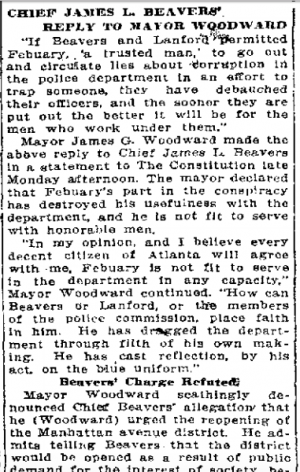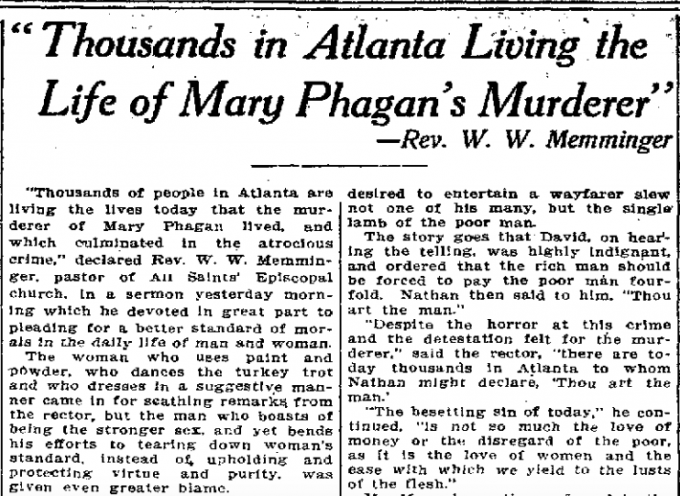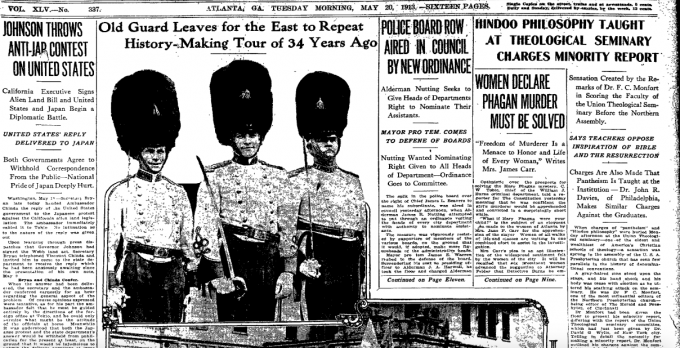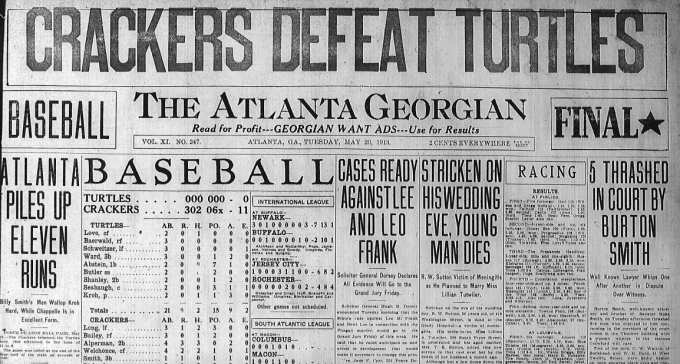Another in our series of new transcriptions of contemporary articles on the Leo Frank case.
Atlanta Constitution
August 5th, 1913
By Britt Craig.
There was a chorus girl who sat next to an aged and withered woman who is undoubtedly a grandmother—a great-grandmother, maybe; there was a painted-cheeked girl with hollow eyes who bore the unmistakable stain of crimson, who sat between a mother who held in her lap an eager 13-year-old.
There was a wrinkled and worn old woman with the lines of care stamped indelibly, who hobbled into the room on a crutch and sat beside a man who chewed tobacco and whispered profanity. Over in a corner there was a graceful young woman with a wide hat and flowing plume and pretty features crowned with a wealth of auburn hair.
They all were at the Frank trial yesterday, listening intently to Jim Conley’s ugly story, many parts of which brought shame to the cheeks of the hardened court attaches. They sat throughout his tale, eager, expectant, apparently thrilled through and through and intent upon missing nothing.
Not a single one left the courtroom until adjournment time. On Friday afternoon, when Dr. Harris gave intimate testimony of details of his examination of Mary Phagan’s body a number of women arose from their seats, shielded their blushing cheeks with newspapers, and strode from the courtroom.
But Monday it was different. Jim Conley’s tale reeked at times and yet not a woman left the courtroom. Instead they leaned forward, bent upon escaping nothing of the odious details that came from the negro’s mouth. A mother held a child in knee dresses on a knee in a position in which the child could see and hear perfectly.
The mother held a fan, with which she fanned briskly at times. That is, at times when there was a lull in the story. But it stopped, the fan did, and was held poised in expectation, when Conley would resume relating his story.
Continue Reading →





